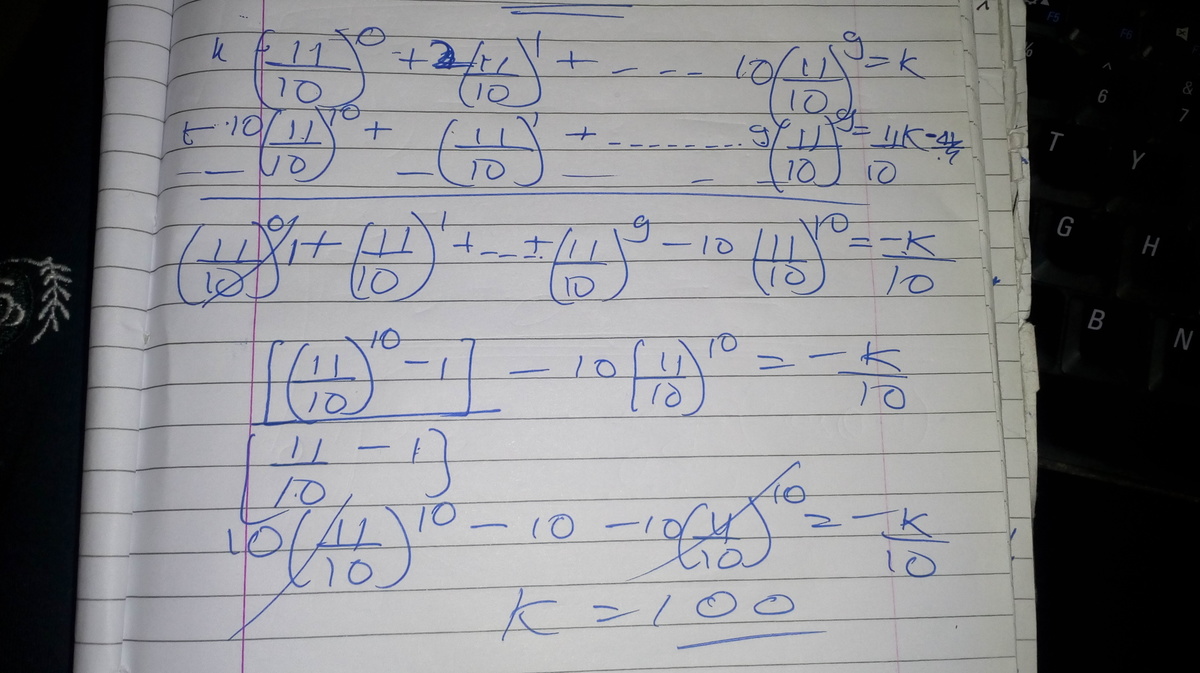JEE-Mains 2014 (8/30)
( 1 0 ) 9 + 2 ( 1 1 ) 1 ( 1 0 ) 8 + 3 ( 1 1 ) 2 ( 1 0 ) 7 + … + 1 0 ( 1 1 ) 9 = k ( 1 0 ) 9
What is the value of k such that the equation above is satisfied?
This section requires Javascript.
You are seeing this because something didn't load right. We suggest you, (a) try
refreshing the page, (b) enabling javascript if it is disabled on your browser and,
finally, (c)
loading the
non-javascript version of this page
. We're sorry about the hassle.
4 solutions
divide by 10^9. You get k=(11/10)^0+2(11/10)^1+..........+10(11/10)^10 ...i i*11/10.....ii ii - i; we get k=100.
 Sorry not good handwriting :-)
Sorry not good handwriting :-)
Happy to see this.handwriting
no .but i found someone with similar handwriting with me...
Bad way!
Just helpful for elimination of options.
Assume 1 1 to be 1 0 for time being. And solve...We get that k > 5 5 .
So 4 . 4 1 and 1 2 . 1 are obviously wrong options...
Since probability is 0 . 5 of getting correct option, we can make a guess now.
k = n = 1 ∑ 1 0 n ∗ 1 . 1 n − 1 . a n A − G p r o g r e s s i o n . ∴ k = 1 − r a − { a + ( n − 1 ) ∗ d } r n + 1 − r 2 d ∗ r ( 1 − r n − 1 ) . O u r a = d = 1 , r = 1 . 1 . S u b s t i t u t i n g w e g e t k = 1 0 0 .
let s(n)= 1 0 9 +2(11)( 1 0 8 ) +....... then 1 0 1 1 s(n)= (11)( 1 0 8 ) + 2( 1 1 2 )( 1 0 7 )+ ..... by subtracting these two we get 1 0 − 1 s(n)= 1 0 9 +(11)( 1 0 8 ) + ( 1 1 2 )( 1 0 7 ) + ......... - 1 1 9 (11) apply GP formula where a= 1 0 9 , r= 1 0 1 1 , n=10 and then find s(n). you will get s(n)=( 1 0 9 )( 1 0 2 )